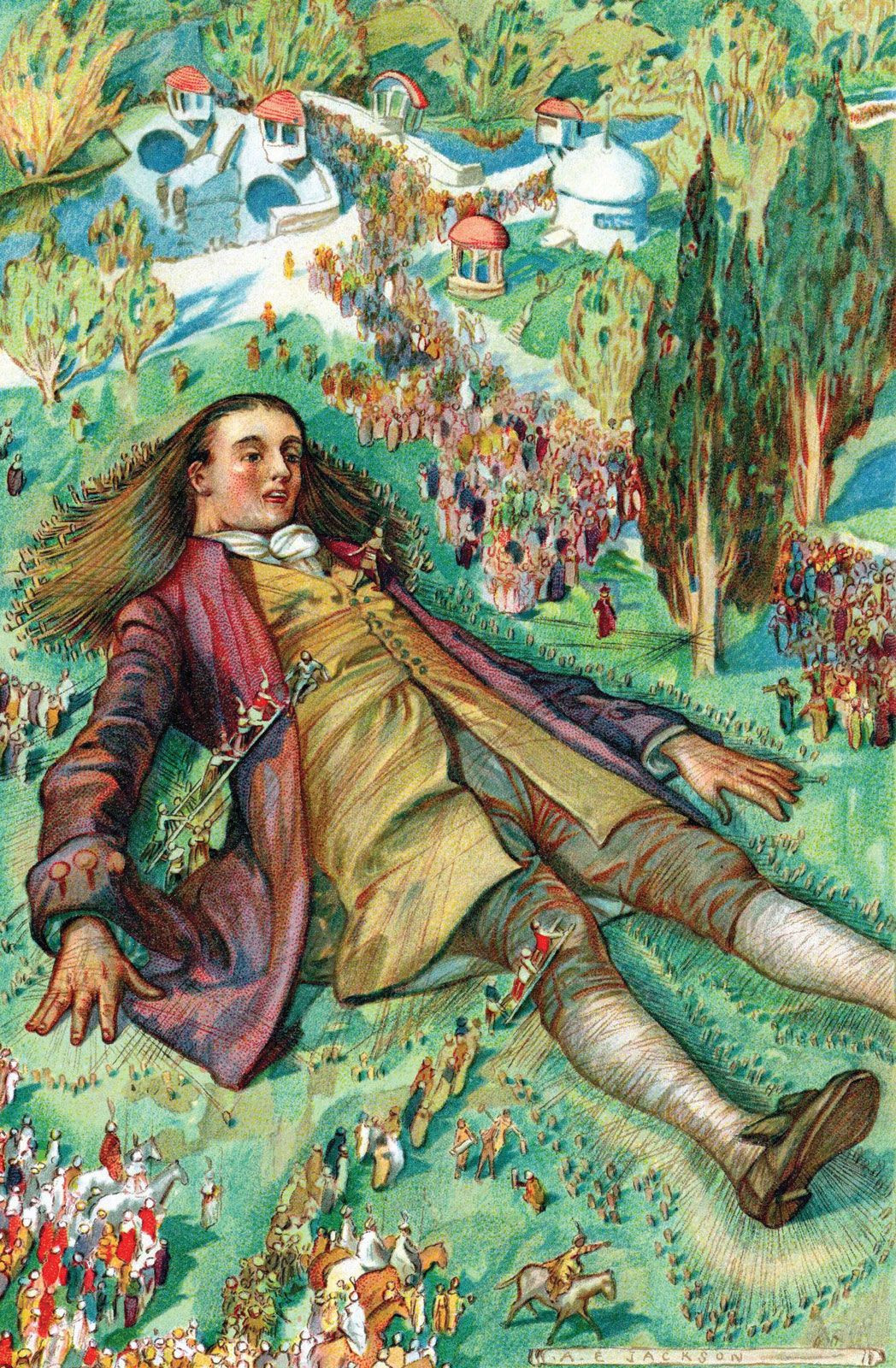Jonathan Swift’s Gulliver’s Travels is a masterpiece of satirical literature, and the first voyage to Lilliput is perhaps its most enduringly famous section. This part of the novel introduces readers to Lemuel Gulliver, a ship’s surgeon who finds himself shipwrecked and washed ashore on the island of Lilliput. Here begins Gulliver’s bewildering and insightful encounter with a world in miniature, both literally and figuratively. The Lilliput section serves as a biting commentary on the politics, society, and petty squabbles of Swift’s own time, all viewed through the exaggerated lens of a world populated by six-inch-tall people.
The narrative unfolds as Gulliver recounts his initial shock and captivity in Lilliput. Upon waking after his shipwreck, he discovers himself bound by countless tiny threads, surrounded by miniature people, the Lilliputians. This initial helplessness of a giant among a multitude of small beings immediately sets the stage for the satirical exploration of power dynamics and perspectives. Gulliver, initially a prisoner, gradually becomes a figure of awe and utility to the Lilliputians.
 Lemuel Gulliver and the Lilliputians in Jonathan Swift's Gulliver's Travels
Lemuel Gulliver and the Lilliputians in Jonathan Swift's Gulliver's Travels
The Lilliputian society, despite its diminutive scale, mirrors the complexities and absurdities of human societies. Swift masterfully satirizes the political landscape of his era through the Lilliputians’ petty political factions, the High-Heels and the Low-Heels, representing the Tories and Whigs of England respectively. Their intense and ultimately trivial disputes, such as the ongoing war with Blefuscu over whether to break eggs at the big end or the little end (“Big-Endian” and “Little-Endian” controversy), highlight the ridiculousness of religious and political dogma taken to extremes. These conflicts, though presented in a fantastical context, reflect real-world conflicts driven by similarly insignificant differences amplified by stubborn adherence to tradition.
Gulliver’s interactions with the Lilliputian court and emperor further underscore Swift’s satirical intent. He becomes entangled in their court intrigues and observes their peculiar customs, such as choosing government officials based on their rope-dancing skills. This absurd method of selecting leaders satirizes the often arbitrary and meritless nature of political appointments and the focus on superficial talents over genuine competence. Gulliver’s role shifts from captive to military asset when he aids Lilliput in its war against Blefuscu by capturing the Blefuscudian fleet. However, his refusal to further assist the emperor in completely subjugating Blefuscu demonstrates Gulliver’s (and perhaps Swift’s) aversion to excessive and unnecessary violence and conquest.
Despite his initial favor, Gulliver eventually falls out of grace in Lilliput. His act of extinguishing a fire in the royal palace by urinating on it, though initially seen as heroic, becomes a source of scandal and is later used against him. Accusations and political machinations mount against Gulliver, culminating in a sentence of blinding and starvation. This sudden shift in fortune highlights the fickle nature of political favor and the ease with which individuals can become targets of courtly intrigue and power struggles. Ultimately, Gulliver is forewarned of the plot against him and manages to escape to Blefuscu, where he finds a means to return to England, leaving behind the miniature world of Lilliput and its outsized political absurdities.
The Lilliput section of Gulliver’s Travels is more than just an adventure story; it is a sharp and enduring satire on human nature and societal follies. Through the exaggerated microcosm of Lilliput, Swift critiques the pettiness of political disputes, the absurdity of social customs, and the often-irrational nature of human behavior. The summary of Gulliver’s time in Lilliput serves as an accessible entry point into Swift’s larger satirical project, prompting readers to consider the parallels between the fictional world he created and the realities of their own world.
